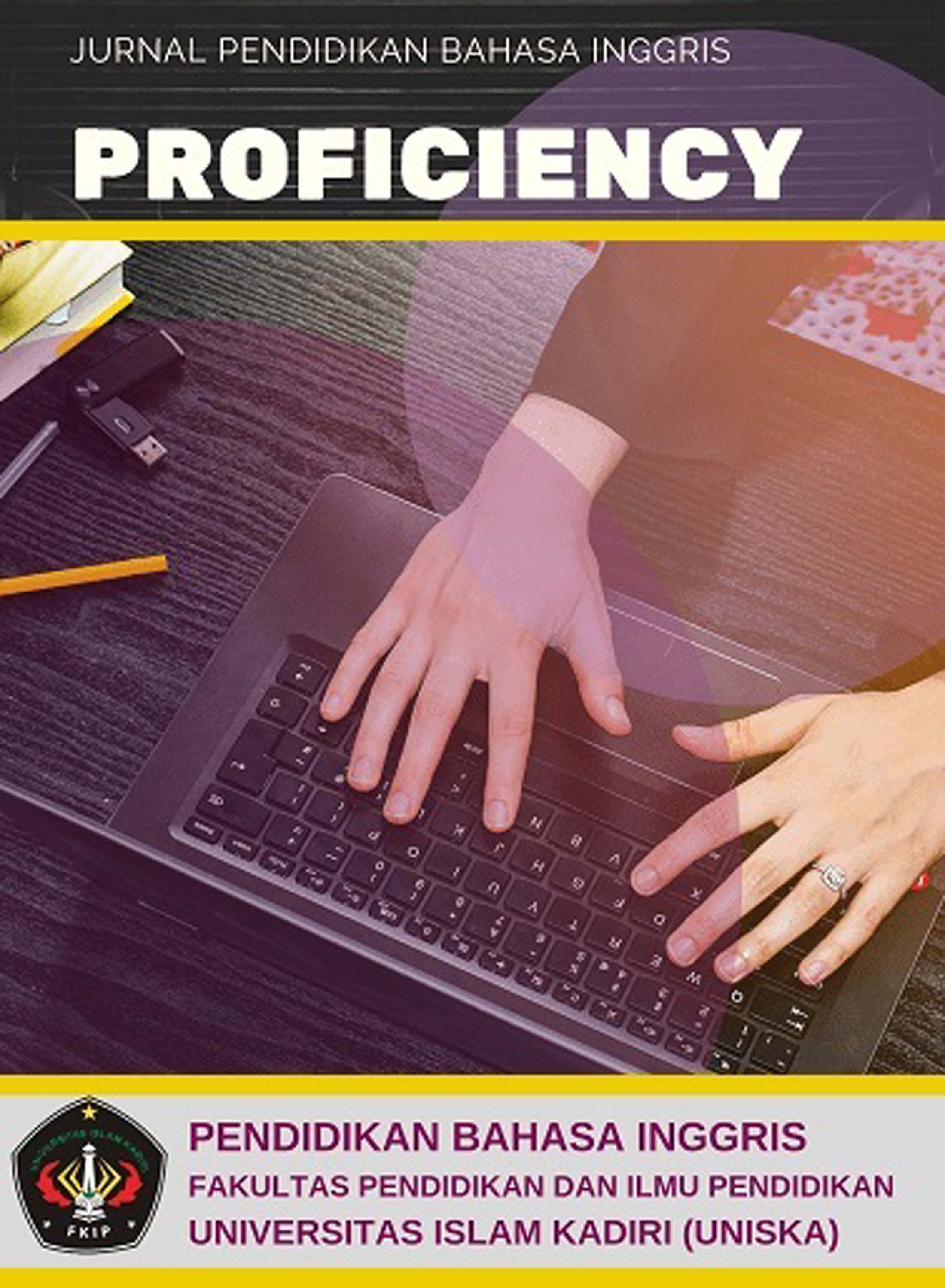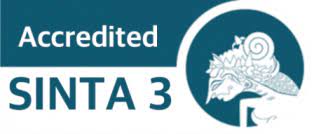EVALUATING THE IMPACT OF ENGLISH FOR SPECIFIC PURPOSES (ESP) PROGRAMS ON ACCOUNTING STUDENTS' JOB READINESS
Abstract
The aim of this research is to assess how effectively the English for Specific Purposes (ESP) program prepares accounting students for job opportunities. The goal of the ESP program is to provide students with the English language proficiency required in the profession, particularly in the accounting industry, which frequently deals with foreign reporting and global standards. Students, lecturers, and graduates of the accounting study program were surveyed and interviewed as part of this mixed-methods study. The findings demonstrate that the ESP program improves the students' understanding of English-language accounting terminology and their abilities for professional communication in a global environment. However, the survey also found a number of obstacles, including lecturers' lack of training and time limits. These results suggest that the ESP curriculum should be updated to emphasize speaking communication skills and practical aspects, and that lecturers' training be improved in order to fulfil the needs of industry.
References
Kakilo, R., Hinelo, R., & Podungge, R. (2022). Pengaruh Kualitas Sumber Daya Manusia Terhadap Peningkatan Kinerja UMKM Di Kota Gorontalo. YUME : Journal of Management, 5(3), 358–366. doi:10.37531/yume.vxix.347
Lestari, P. M., Dwiharyadi, A., & Djefris, D. (2023). Faktor-Faktor Yang Mempengaruhi Kesiapan Kerja Mahasiswa Jurusan Akuntansi Politeknik Negeri Padang. Jurnal JABEI, 2, 74–82.
Marlinah, L. (2019). PENTINGNYA PERAN PERGURUAN TINGGI DALAM MENCETAK SDM YANG BERJIWA INOVATOR DAN TECHNOPRENEUR MENYONGSONG ERA SOCIETY 5.0. Jurnal IKRA-ITH Ekonomika, 2, 17–25.
Matthew B. Miles, A., Huberman, M., & Saldana Johnny. (2014). Qualitative Data Analysis, a methods sourcebook the third edition. (H. Salmon, Ed.) (3rd ed.). SAGE.
Nasution, S. (2018). PERANAN BAHASA INGGRIS SEBAGAI TOLOK UKUR PESATNYA PEREKONOMIAN DI INDONESIA. Jurnal Bisnis Net.
Polisda, Y., Novalinda, & Wahyuni, S. (2022). KETERAMPILAN BAHASA INGGRIS BAGI MAHASISWA JURUSAN PERHOTELAN: ‘LINK AND MATCH’ DUNIA PENDIDIKAN DAN DUNIA KERJA. Jurnal Priwisata Bunda, 2, 39–47.
Prasongko, A. (2023a). English for Specific Purpose (ESP) Teaching Design Based on Accounting Students Needs Analysis. EDUCATION AND LINGUISTICS KNOWLEDGE JOURNAL (EDULINK) , 5(2), 162–173.
Prasongko, A. (2023b). STUDENTS’ SPEAKING DIFFICULTIES IN ESP: ENGLISH FOR ACCOUNTING. Jurnal Pendidikan Bahasa Inggris Proficiency (Vol. 5).
Prasongko, A., & Srihastuti, E. (2024). Enhancing English and accounting skills through a VOCABING-based technology program for MSMEs in Kediri. Journal of Community Service and Empowerment, 5(2), 301–306. doi:10.22219/jcse.v5i2.29488
Sari, A. A., Farida, L., Astuti, Y. D., Karimah, U. N., & Sarapil, H. (2017). Peran English For Specific Purpose (ESP) Terhadap Performa Pembelajaran Mahasiswa Akuntansi. Jurnal Academia, 1(2).
Septiani, T. (2021). Implementasi ESP Terhadap Performa Pembelajaran Mahasiswa Akuntansi ESP Implementation on Accounting Student Learning Performance. Journal of Accounting and Finance, 1(02), 14–18.
Siregar, U. D. (2023). Bahasa Inggris sebagai Bahasa Komunikasi Bisnis di Era Globalisasi. JBSI: Jurnal Bahasa Dan Sastra Indonesia, 3(01), 129–135. doi:10.47709/jbsi.v3i01.2608
Sugiyono. (2009). Metode Penelitian Kuantitatif Kualitatif dan R & D. Bandung: Alfabeta.
Suhayati, L., Chasanah, U., Puspitasari Sunaryo Putri, D., & Arya Nurrachman, F. (2024). Meningkatkan Kemampuan Bahasa Inggris dalam Analitik Data untuk Kesuksesan Bisnis bagi Mahasiswa UMT Malaysia (Vol. 5). Retrieved from https://madaniya.biz.id/journals/contents/article/view/900
Sulastini, R., Nuraeni, I. I., Marlina, R., & Saefullah, S. (2023). Manajemen Kurikulum dan Evaluasi Pembelajaran Esp:English For Accounting untuk Meningkatkan Efektivitas Manajemen Keuangan. Journal of Education Research, 4, 298–2204.
Suspahariati, & Setyobudi, B. (2021). Peran Pelatihan dan Pengembangan dalam Meningkatkan Kinerja Dosen di Perguruan Tinggi. Website: Journal (Vol. 7).
Umatin, C., & Sri Andayani, E. (2022). PENGARUH SELF-EFFICACY DAN KEMAMPUAN BAHASA INGGRIS TERHADAP ASPIRASI KARIR BIDANG AKUNTANSI THE EFFECT OF SELF-EFFICACY AND ENGLISH SKILL TOWARDS CAREER ASPIRATIONS IN THE ACCOUNTING FIELD. Jurnal Pendidikan Akuntansi Indonesia, 20, 25–38.
Utami, R., & Maulana Baihaqi, W. (2020). Pengaruh Teknologi Informasi Revolusi Industri 4.0 terhadap Perkembangan UMKM Sektor Industri Pengolahan. JURNAL MATRIX (Vol. 10).
Wasiati, H., & Wijayanti, D. (2014). Sistem Pendukung Keputusan Penentuan Kelayakan Calon Tenaga Kerja Indonesia Menggunakan Metode Naive Bayes (Studi Kasus: Di P.T. Karyatama Mitra Sejati Yogyakarta). IJNS-Indonesian Journal on Networking and Security, 3(2), 2354–6654. Retrieved from http://ijns.org
Yulientinah, D. S., Juwita, R., & Resdiana, W. (2020). Identifikasi Analisis Kebutuhan Pembelajaran Bahasa Inggris (Non Program Studi Bahasa Inggris) Pada Mata Kuliah Bahasa Inggris Khusus/ English For Specific Purposes (ESP) Di Program Studi D4 Akuntansi Keuangan Politeknik Pos Indonesia. COMPETITIVE, 15(1). Retrieved from http://ejurnal.poltekpos.ac.id/index.php/competitive|1
































